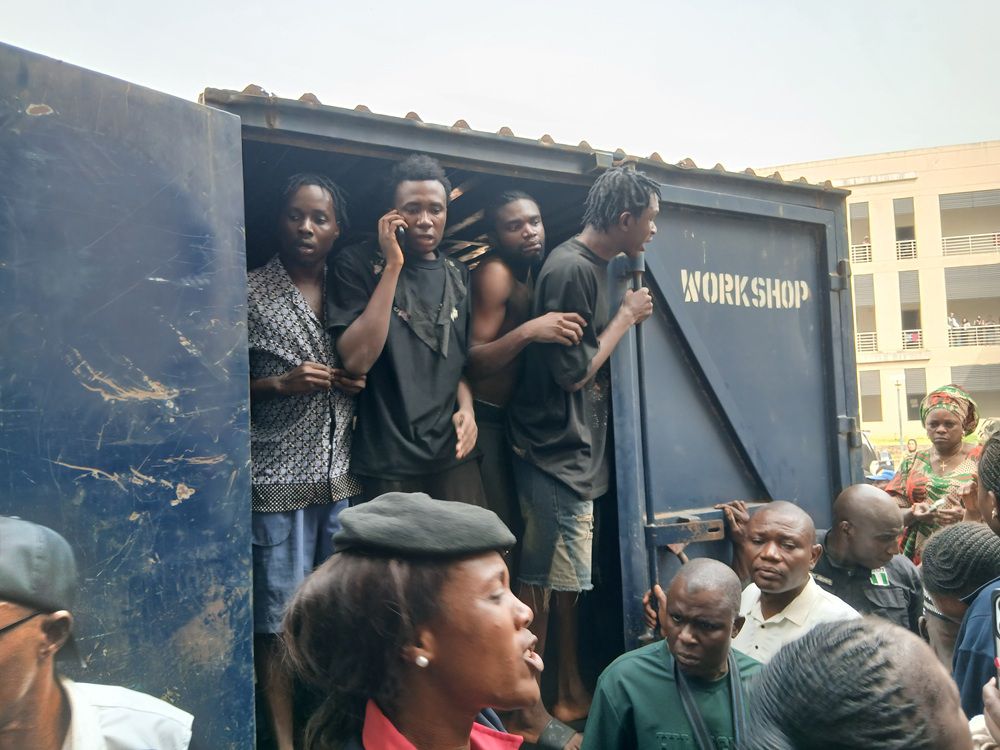In a shocking escalation of violence in northeast Nigeria, fighters from the Islamic State West Africa Province (ISWAP) allegedly ambushed a Nigerian military convoy in Borno State, resulting in multiple deaths and the reported kidnapping of a serving general. Early reports indicate that both soldiers and members of the Civilian Joint Task Force (CJTF) were among the casualties.
The general, identified as a brigade commander, was reportedly leading the convoy when the attack occurred. If confirmed, this would mark the first recorded case of ISWAP kidnapping a high-ranking officer directly from the frontline, raising serious concerns about the insurgents’ growing operational capability and intelligence network.
The ambush is said to have taken place along a major supply route in Borno, a region long plagued by insurgency. Eyewitnesses described a sudden, well-coordinated assault involving heavy gunfire and explosives, designed to halt the convoy and overwhelm the soldiers. Several military vehicles were reportedly destroyed, and multiple personnel were killed instantly.
The attack also targeted members of the Civilian Joint Task Force, highlighting ISWAP’s willingness to strike at both professional soldiers and allied civilian forces. The CJTF has been instrumental in assisting the military with intelligence and local security operations, making them a key target for insurgents aiming to weaken counterinsurgency efforts.
This ambush delivers a significant blow to military morale. The reported abduction of a brigade general strikes at the heart of military leadership and sends a chilling signal about ISWAP’s increasing audacity. Historically, attacks by ISWAP have killed officers, but kidnapping someone of such high rank represents a new and dangerous escalation. The psychological impact on troops and local populations cannot be overstated, as confidence in the army’s ability to secure personnel and civilians may be shaken.
The operation also demonstrates ISWAP’s growing sophistication. The ability to execute such a complex attack against a well-armed convoy suggests careful planning, intelligence gathering, and tactical coordination. This raises pressing questions about the security of high-ranking officers and troop movements in conflict zones.
ISWAP has a documented history of ambushing and attacking military and civilian targets in northeast Nigeria. Past incidents include the Garin Giwa ambush in 2020, which killed at least ten special forces soldiers, and the Mainok attack in 2021, where 33 soldiers lost their lives and heavy military equipment was destroyed. Earlier this year, several ambushes in Borno claimed the lives of multiple soldiers, illustrating a persistent pattern of high-risk, high-casualty operations. These incidents underscore the ongoing threat and evolving tactics of ISWAP, which continues to refine its ability to launch large-scale, coordinated attacks.
The potential fallout from this ambush is immense. The Nigerian Army is expected to launch a major counter-operation to rescue the kidnapped officer and neutralize the insurgents responsible. Confirmation of the general’s capture could trigger either negotiations or a high-stakes military rescue mission.
For local communities and allied civilian forces, the attack is a stark reminder of the dangers they face. The targeting of CJTF members threatens to undermine local cooperation with security forces, which has been crucial in counterinsurgency operations. Public confidence in the military’s ability to protect both personnel and civilians may be further eroded, heightening the sense of vulnerability in the region.
Analysts warn that this ambush could mark a new phase in ISWAP’s insurgency, one characterized by daring, high-profile attacks and direct challenges to military authority. Escalating violence threatens not only regional security but also the humanitarian situation, as increased military and insurgent activity could put civilians at greater risk. Given ISWAP’s connections to global jihadist networks, significant successes may also attract further attention and influence from international extremist actors.
The key questions now remain: How will the military protect its high-ranking officers in conflict zones? Can intelligence and security gaps be addressed to prevent future ambushes? And how will this incident shape Nigeria’s long-term counterinsurgency strategy in the northeast?



